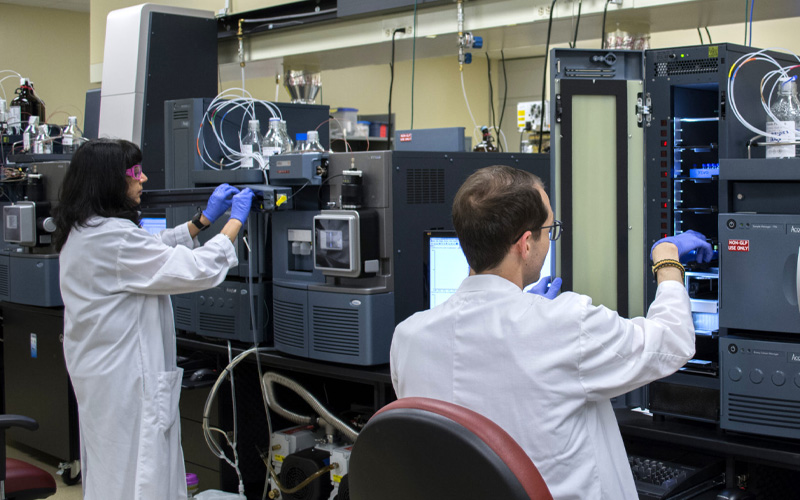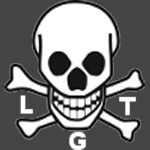In the rapidly evolving field of biopharmaceutical development, LTG bioanalysis services stand out as a beacon of innovation and precision. These specialized services are integral to the process of drug discovery and development, offering insights that were once thought to be unattainable. In this article, we will explore the multifaceted world of LTG bioanalysis services and discuss how they can enhance research outcomes, improve efficiencies, and ultimately contribute to better patient care.
Understanding LTG Bioanalysis Services

The term ‘bioanalysis’ refers to the quantitative measurement of biomolecules in biological samples. In the context of LTG bioanalysis services, it encompasses a wide range of techniques, methodologies, and applications that cater specifically to the pharmaceutical and biotechnology industries.
Importance of Bioanalysis in Drug Development
Drug development is an intricate process that requires a plethora of data to ensure safety and efficacy. LTG bioanalysis services play a pivotal role at various stages of this journey.
- Phase 1: Preclinical Research
During preclinical research, LTG bioanalysis services provide essential data about a drug’s pharmacokinetics and pharmacodynamics. This phase often involves animal models, and bioanalytical methods can help researchers understand how drugs behave in living organisms. By quantifying drug concentrations in tissues or fluids, scientists can make informed decisions about dosing regimens and study designs.
- Phase 2: Clinical Trials
As drugs move into clinical trials, thorough bioanalysis becomes even more crucial. LTG bioanalysis services assist in monitoring drug exposure levels, therapeutic effects, and any adverse reactions in human subjects. Accurate data collection during these trials is vital for regulatory submissions and marketing approvals.
- Phase 3: Post-Marketing Surveillance
Once drugs are approved, LTG bioanalysis services remain essential for post-marketing surveillance. Monitoring long-term effects and identifying rare side effects can have significant implications for public health. Continuous bioanalysis of patient samples ensures that drugs remain safe and effective over time.
Techniques Used in LTG Bioanalysis Services
LTG bioanalysis employs a variety of sophisticated techniques to achieve highly accurate results.
- Mass Spectrometry
Mass spectrometry (MS) is one of the cornerstones of bioanalysis. It allows researchers to identify and quantify molecules within complex biological matrices. The sensitivity and specificity of mass spectrometry technology make it ideal for measuring low concentrations of drugs and metabolites.
- Liquid Chromatography
Liquid chromatography (LC) is another essential technique used alongside MS. It separates compounds before they are analyzed by mass spectrometry, providing cleaner data and reducing interference from other substances in the sample.
- Immunoassays
Immunoassays utilize antibodies to detect specific proteins or biomarkers in biological samples. They are particularly useful for large-scale screening and offer a high degree of specificity.
Regulatory Compliance and Quality Assurance
The implementation of LTG bioanalysis services also has to adhere to rigorous regulatory standards.
- Good Laboratory Practice (GLP)
GLP guidelines ensure that laboratory studies are conducted with the utmost integrity. LTG bioanalysis services comply with these principles, ensuring that every step, from sample collection to data analysis, meets the required quality benchmarks.
- Quality Control Measures
Quality control measures are integrated into all analytical procedures. These measures include regular calibration of instruments, use of standard reference materials, and continuous training for personnel to maintain consistent and reliable results.
Applications of LTG Bioanalysis Services
The scope of LTG bioanalysis services extends beyond traditional pharmacokinetics. Its applications are vast and varied, affecting many aspects of biopharmaceutical research and development.
Therapeutic Drug Monitoring
Therapeutic drug monitoring (TDM) is one area where LTG bioanalysis services are indispensable.
- Optimizing Dosage Regimens
By measuring drug concentrations in patients’ blood, clinicians can adjust dosages for optimal therapeutic effect while minimizing toxicity. This is particularly important for drugs with narrow therapeutic indices, where the margin between effectiveness and toxicity is minimal.
- Personalized Medicine
The emergence of personalized medicine relies heavily on accurate bioanalysis. LTG bioanalysis services facilitate individualized treatment plans based on a patient’s unique pharmacogenomic profile, allowing for tailored therapies that maximize efficacy while reducing side effects.
Biologics and Biosimilars
The rise of biologics and biosimilars has created new avenues for LTG bioanalysis services.
- Characterization of Biologics
Biologics are complex molecules derived from living cells, necessitating advanced analytical approaches for characterization. LTG bioanalysis services employ cutting-edge technologies to analyze protein structures, glycosylation patterns, and other attributes critical for therapeutic efficacy and safety.
- Biosimilar Development
Developing biosimilars—drugs that are highly similar to already approved biologics—requires extensive bioanalytical work. LTG bioanalysis services help confirm that biosimilars match their reference products in terms of pharmacokinetics and pharmacodynamics.
Environmental and Agricultural Applications
Bioanalysis isn’t just confined to human health; it has broader implications as well.
- Environmental Monitoring
LTG bioanalysis services can help monitor drug residues in environmental samples, such as water or soil, facilitating assessments of ecological impacts and compliance with environmental regulations.
- Agricultural Biotechnology
In agriculture, bioanalysis can be employed to evaluate the safety and efficacy of genetically modified organisms (GMOs). LTG bioanalysis services can ensure that GMOs meet safety standards and perform as expected in real-world conditions.
FAQs
What is LTG bioanalysis services?
LTG bioanalysis services refer to specialized analytical techniques used to measure biomolecules in biological samples, primarily within the pharmaceutical and biotechnology sectors.
Why is bioanalysis important in drug development?
Bioanalysis provides critical data on drug pharmacokinetics, pharmacodynamics, and safety, which are essential for making informed decisions throughout the drug development process.
What techniques are commonly used in LTG bioanalysis services?
Common techniques include mass spectrometry, liquid chromatography, and immunoassays, each offering unique advantages in terms of accuracy and specificity.
How do LTG bioanalysis services ensure regulatory compliance?
LTG bioanalysis services adhere to guidelines such as Good Laboratory Practice (GLP) and implement quality control measures to maintain the highest standards of data integrity and reliability.
What are some emerging applications of LTG bioanalysis services?
Emerging applications include personalized medicine, therapeutic drug monitoring, and assessments related to biologics and biosimilars, as well as environmental and agricultural applications.
Conclusion
As we navigate through the complexities of modern healthcare, LTG bioanalysis services emerge as a fundamental component of drug development and safety assurance. With their ability to provide precise and reliable data, they empower researchers and healthcare professionals to make informed decisions that ultimately lead to improved patient outcomes. The future holds exciting possibilities as these services continue to evolve, promising advancements not only in pharmaceuticals but also in diverse fields ranging from environmental science to agricultural biotechnology. Embracing LTG bioanalysis services is not just an option; it’s a necessity for those committed to pushing the boundaries of scientific inquiry and improving global health.
